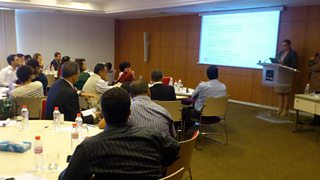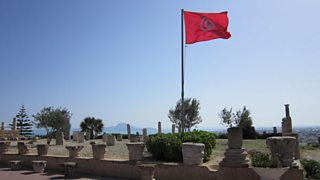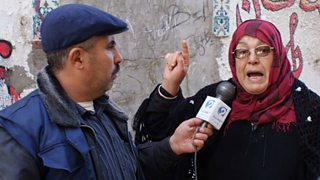The Arab Spring in the winter sun
Karen Wespieser
Research Manager, Middle East and North Africa for �������� Media Action
Tagged with:
If you mention Tunisia to most people in the UK, they'd probably think of two very different things: the country which sparked the Arab Spring after protests in December 2010 and a holiday destination for those eager for winter sun. On my visit to the country last week, I experienced a combination of both.

While tourists relaxed on the pristine sands of one of Tunisia's many beach resorts, I met with journalists, academics and policy-makers in Tunisia's capital to discuss the findings of �������� Media Action's .
The research surveyed 1000 people across Tunisia to find out how they use media and their views on governance in Tunisia. It highlighted the important role that media has in holding government to account in Tunisia and contrasted this finding with low levels of trust in what the media report.
Political turmoil
The launch of the research was timely. It came at the end of a week of protests and increasing violence marking the second anniversary of Tunisia's post-revolution elections. Furthermore, it came on the day the prime minister made a written pledge to step down in a last-ditch effort to persuade the opposition to take part in negotiations to set a date for new national elections and to appoint an electoral commission.

The Tunisian economy relies on tourism. In 2012, tourism accounted for 6.5% of Tunisia's gross domestic product and employed around one in five people directly or indirectly.
Yet in Tunis, one journalist told me that she hadn't slept in three days because she was so concerned about the current situation.
Make-or-break moment
Tunisia is at a turning point, and the media plays a pivotal role in whatever happens next – over half of the Tunisians in our survey rated media more highly than any other institution as a way to hold leaders to account, with over two thirds saying that if there was a way to question government officials, they would.

But the overwhelming majority – 93% – also told us they do not contact the media about issues that matter to them because, as nearly a third of them thought, it “will not make a difference”. Finding a way to change this perception is vital if the media is going to represent Tunisians and I hope that the research that I was able to share last week can help with that process.
As Patrick Merienne, First Secretary for Development at the British Embassy in Tunis, explained, "There is progress in the media compared to pre revolution Tunisia... But it is not perfect. This research can underscore the path that could be followed to reform state media in Tunisia for the future."
Related links
Follow �������� Media Action on and
